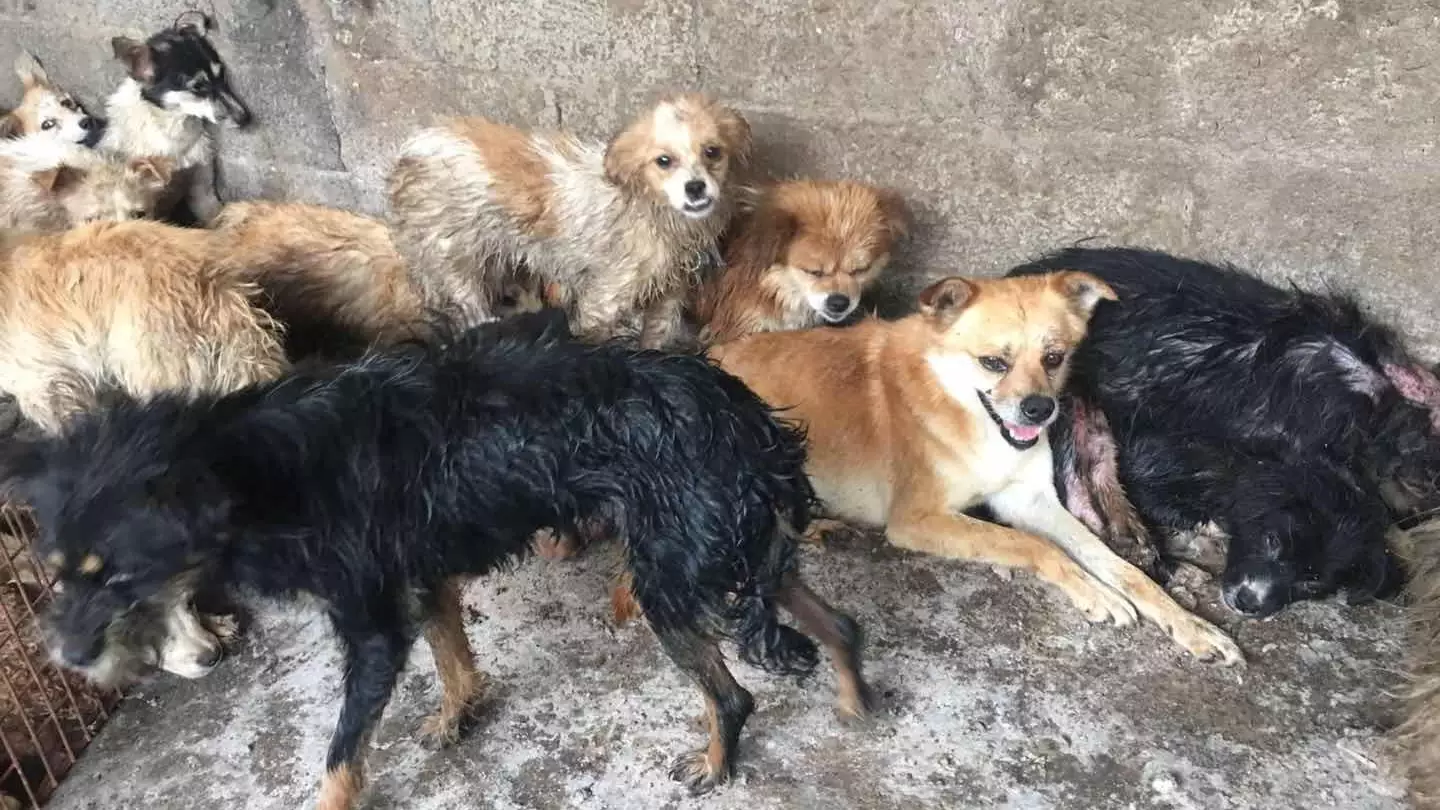
Chinese animal activists have released footage taken from inside a backstreet dog slaughterhouse in Yulin just days before the city holds its annual dog meat festival.
Thousands of dogs and cats will be killed and eaten during the festival, but the activists managed to save nearly 70 animals from certain death.
The anonymous activists managed to get into the filthy slaughterhouse where the dogs were being kept. Some of the dogs appear to be ill, underfed, and infected.
Many of the dogs are small breeds that are often kept as pets - with some still wearing collars. It is thought that a large amount of the dogs eaten in China are either stray dogs that are picked up on the streets or pets that are stolen.
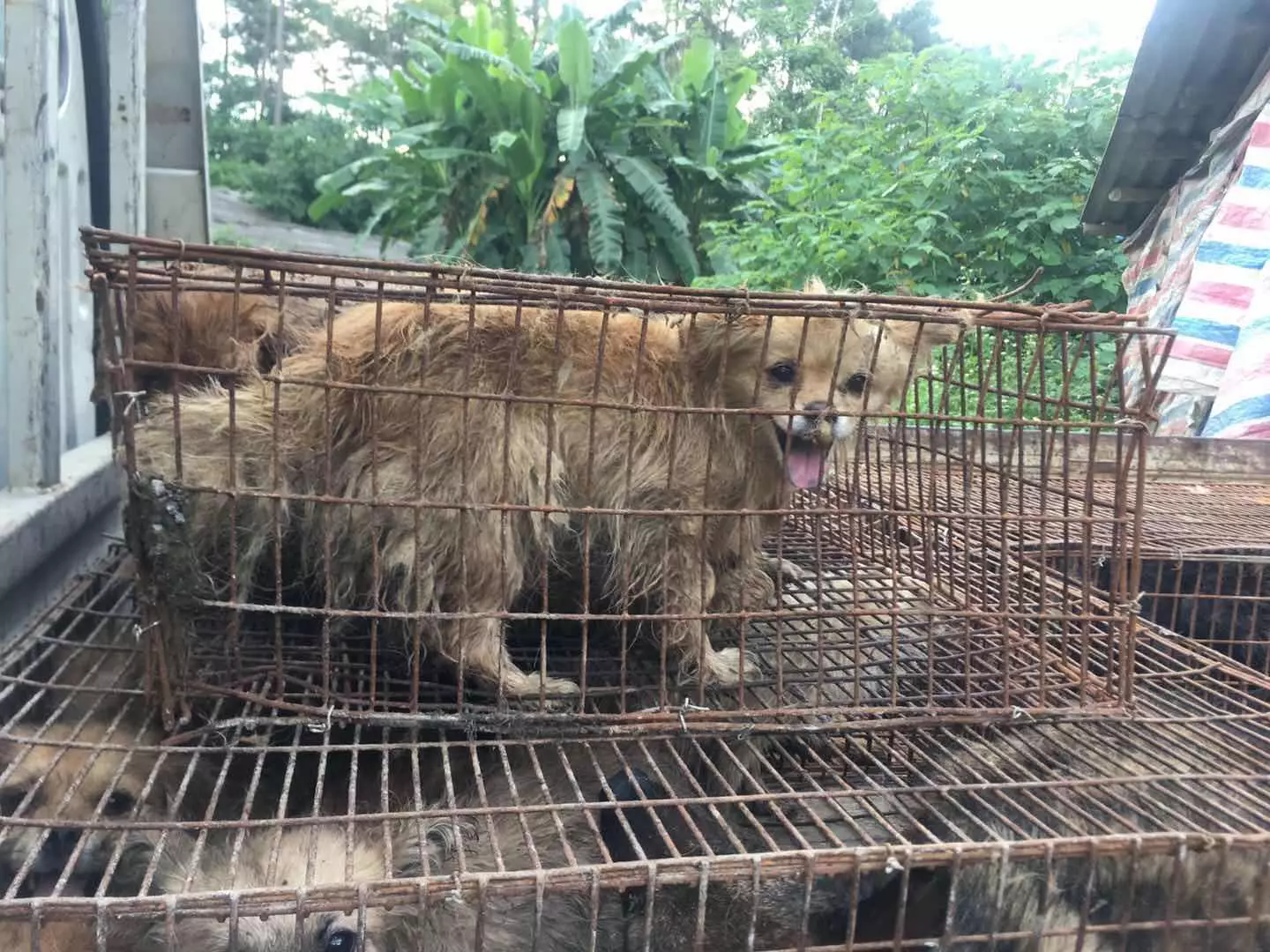
The dogs are then forced into metal cages and transported across the country, often in horrendous conditions, before being beaten to death and butchered.
The Yulin dog festival is set to begin on Friday 21 June to coincide with the summer solstice. However, the festival is a relatively new invention and is not a traditional celebration.
It was invented as recently as 2010 by dog meat salesmen trying to boost sales. The area had no history of eating or slaughtering dogs on this scale before then.
In fact, less than 20 percent of the population of China eat dog meat at all.
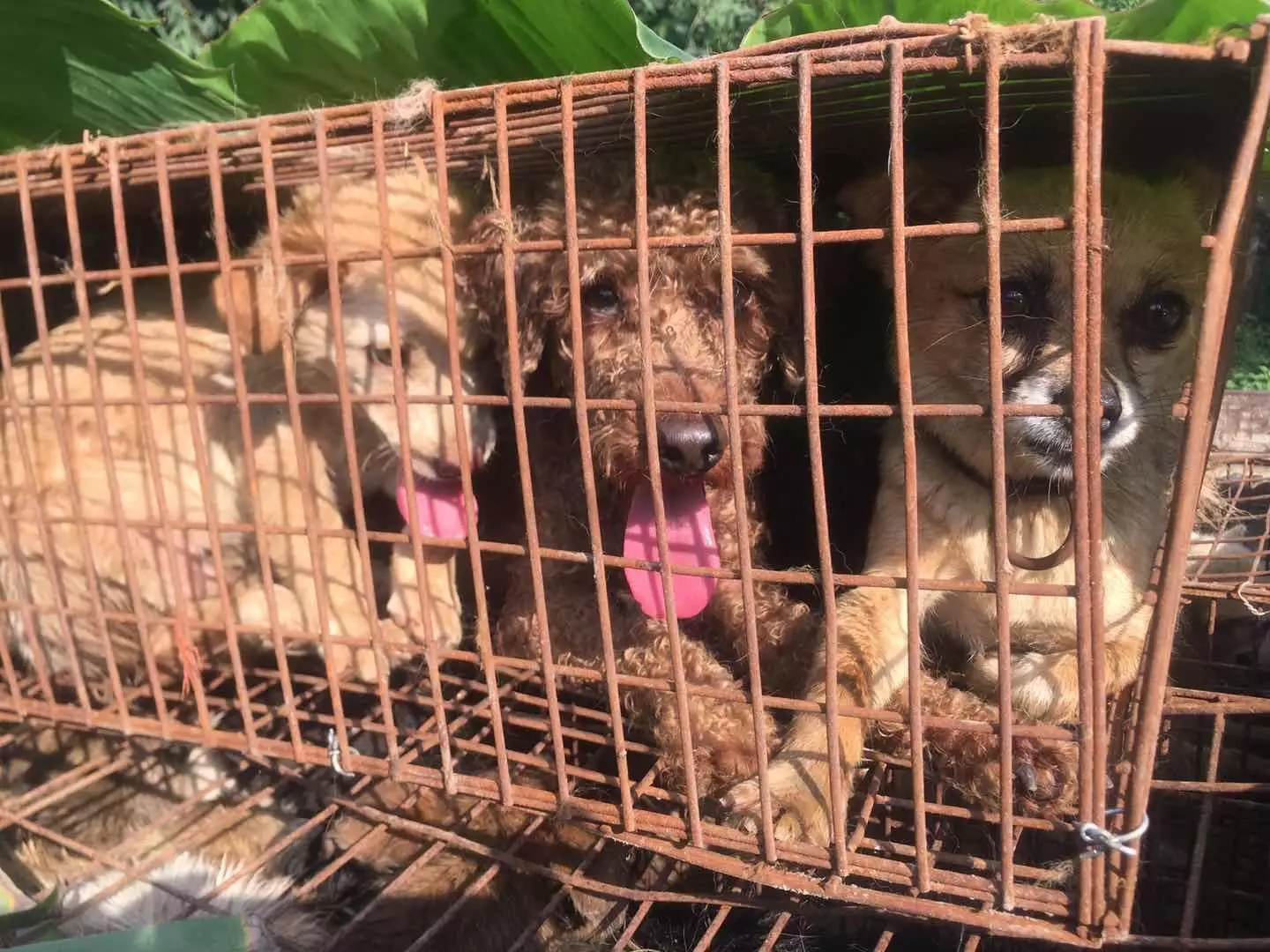
One of the activists responsible for the video told Humane Society International: "It was swelteringly hot inside the slaughterhouse when we got there, the dogs were exhausted and panting, some pressing themselves tight against the wall in an effort not to be noticed.
"Others chased around our legs eager for attention. We noticed straight away that some of them were wearing pet collars so they were probably stolen, and some of them looked very sick so we quickly loaded them on the truck to get them to our temporary shelter quickly to receive emergency veterinary treatment.
"The slaughter man told us that these dogs were likely one of the last truckloads of dogs entering Yulin before the festival because the local government was likely to stop further trucks from entering the city, but we didn't stick around to verify that."
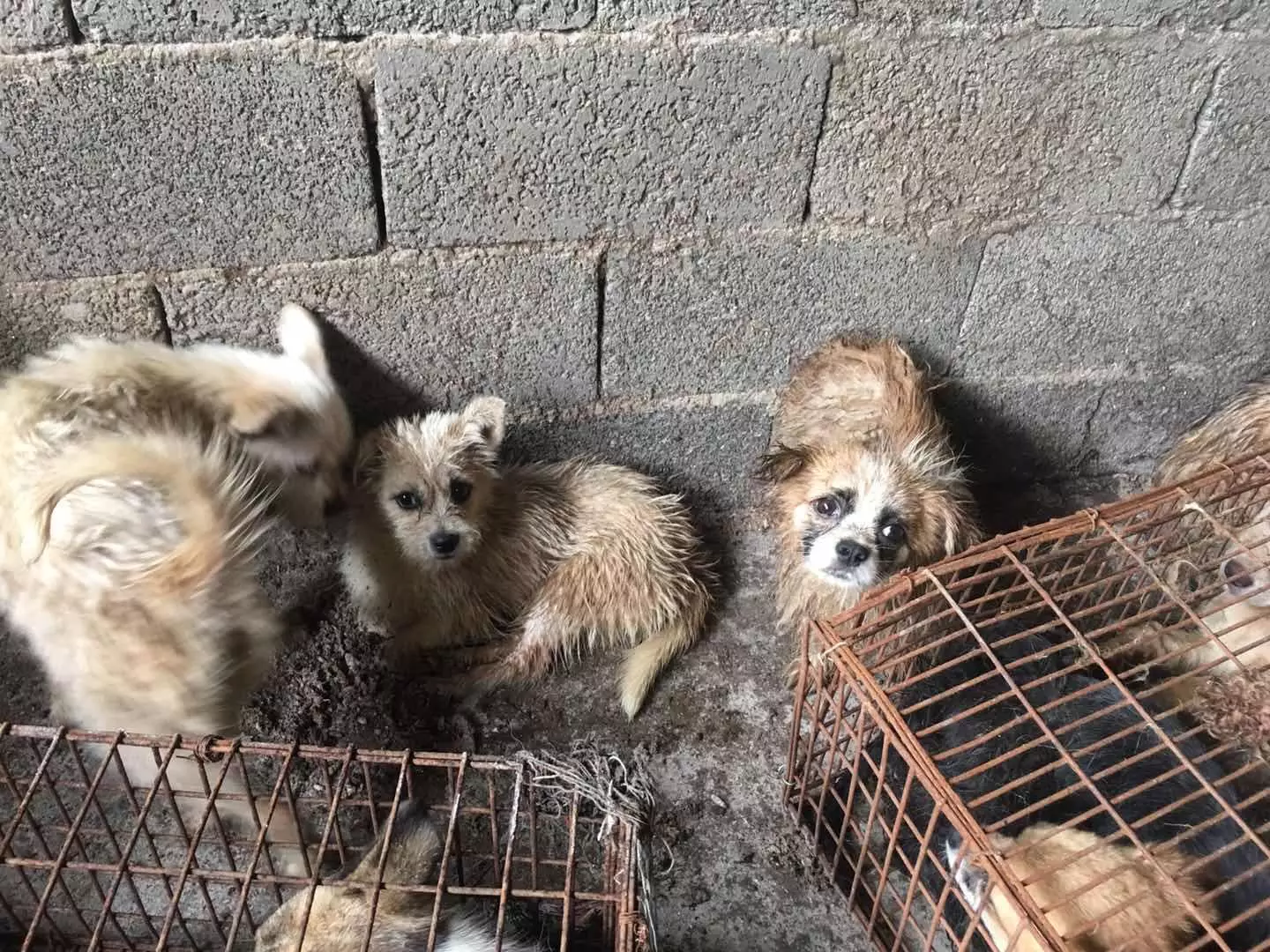
They continued: "We want the world to see the horrors of China's dog meat trade of which Yulin is typical, and for dog lovers everywhere to stand up against this terrible cruelty.
"Please don't waste your breath calling dog eating Chinese culture. It is not our culture to steal people's pets. It is not our culture to eat dogs."
The 62 dogs rescued were then taken to a shelter for food, water, and medical treatment. They have now been moved to more permanent shelters where it is hoped that they can be rehomed.
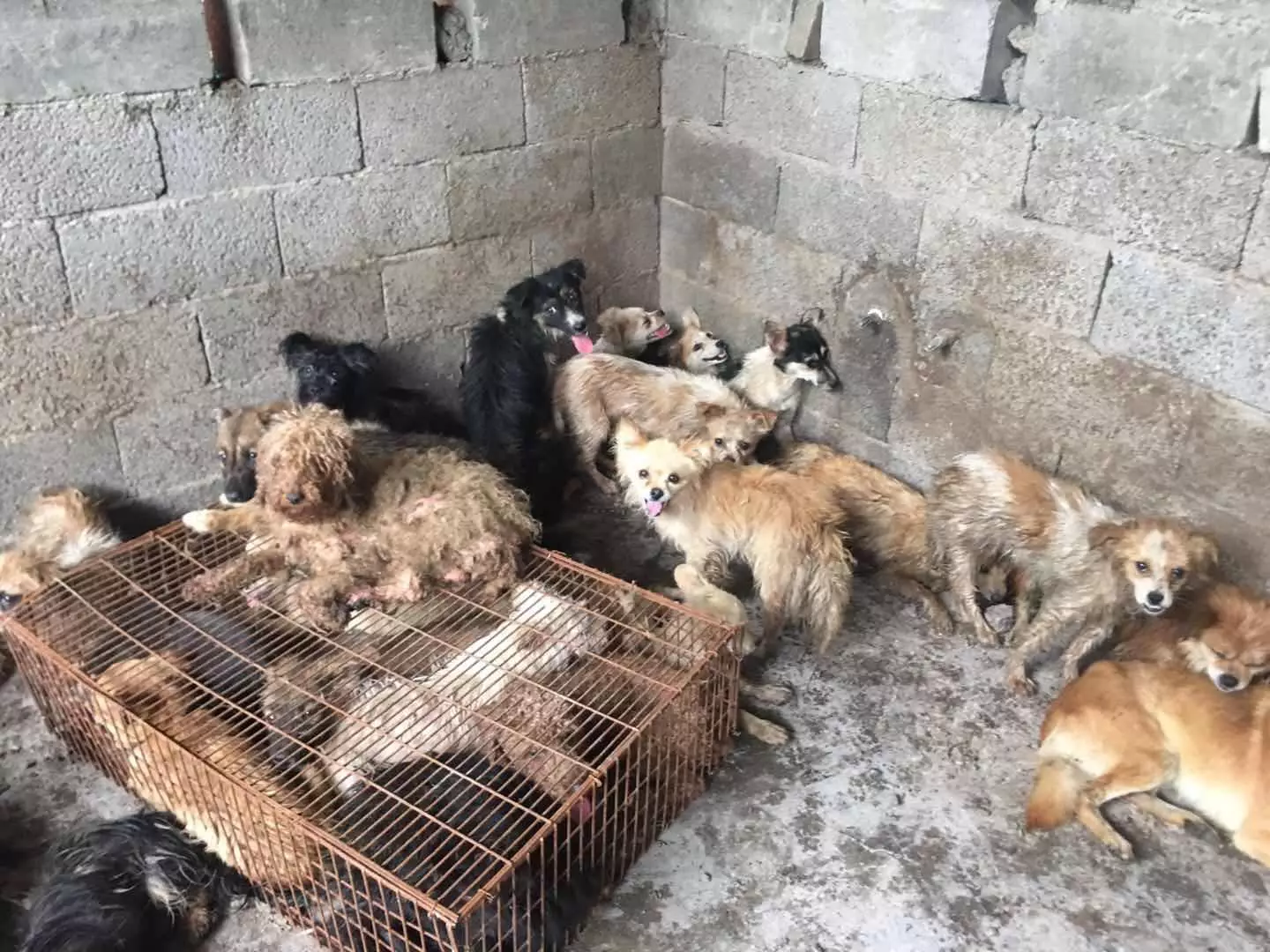
HSI's China policy specialist, Dr Peter Li, added: "Yulin is a very tense place right now, with dog traders and slaughterhouses on high alert, so it was difficult for these Chinese activists to win the trust of this facility to release the dogs.
"We commend their efforts to show the world the suffering of these poor animals, and to expose the dog theft that lies behind the dog meat trade. These dogs are traumatised and in need of veterinary treatment, but they are the lucky ones because for them at least the horror of Yulin is over.
"Sadly, thousands more will still die at Yulin, and millions across China, unless decisive action is taken. So we urge the Chinese government to show that it will not tolerate the dog thief gangs who perpetuate this trade, and bring an end to the brutal dog and cat meat trade."
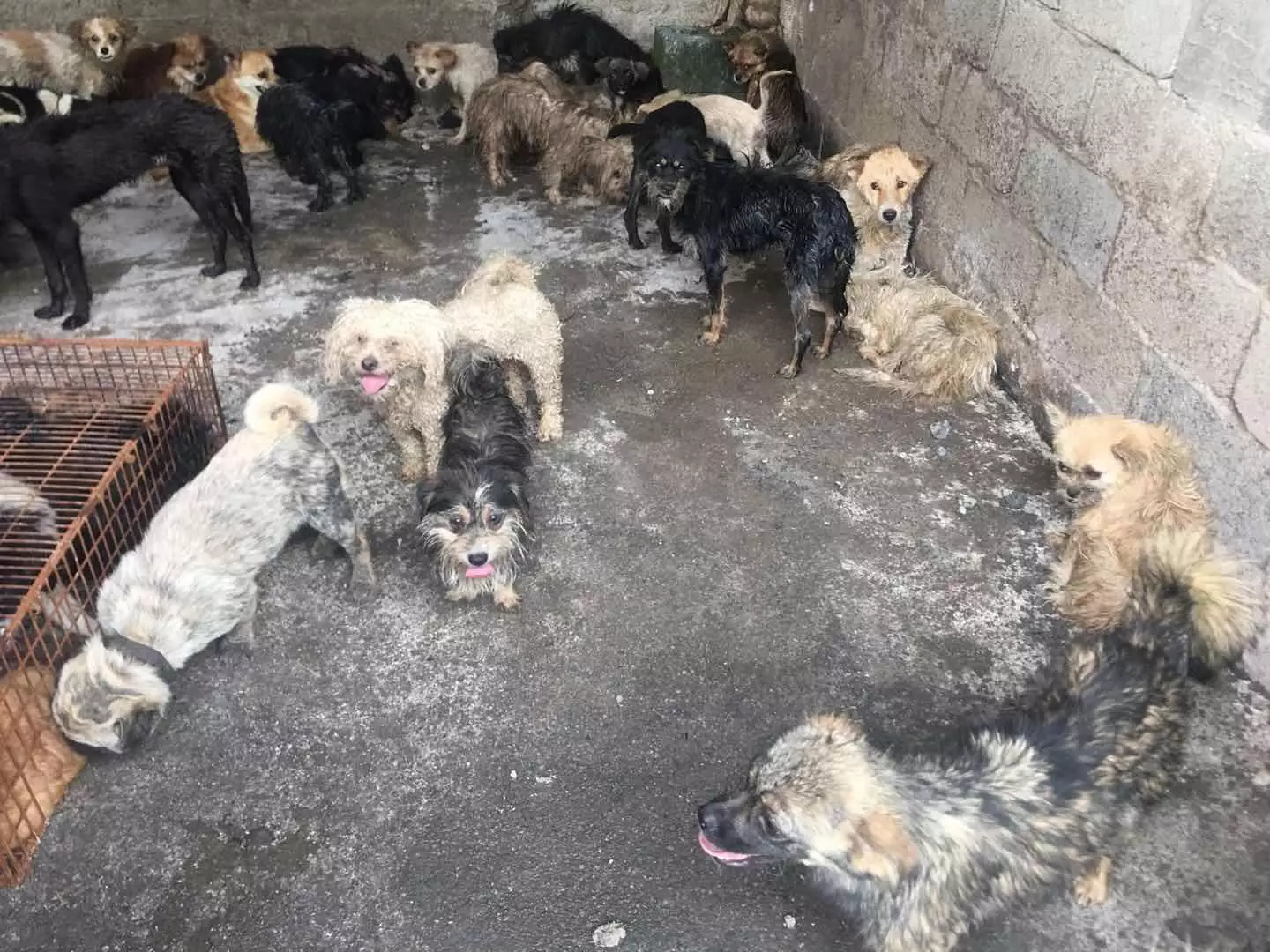
As well as being cruel and illegal, the dog meat trade is responsible for the spread of diseases such as cholera and rabies.
Yulin has one of the highest rates of rabies in humans in China.
Featured Image Credit: Humane Society InternationalTopics: World News, Animals